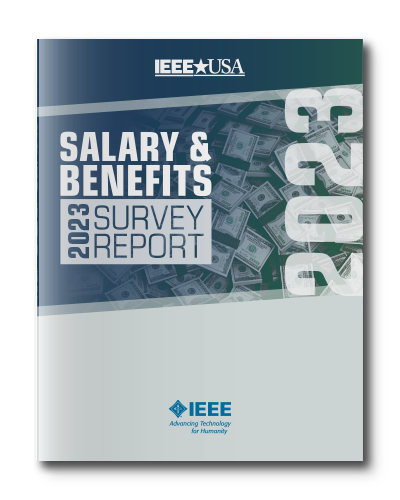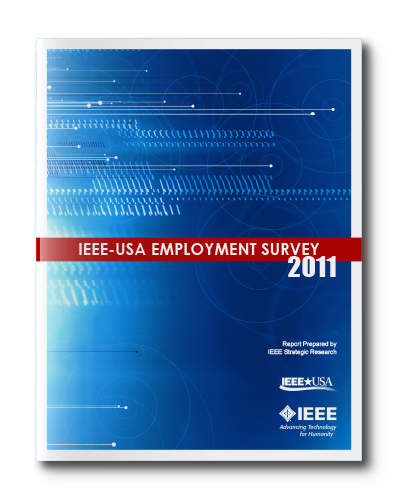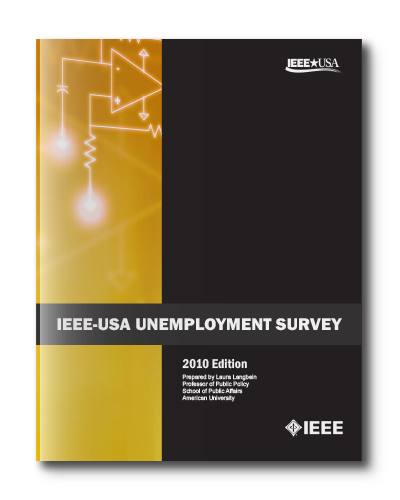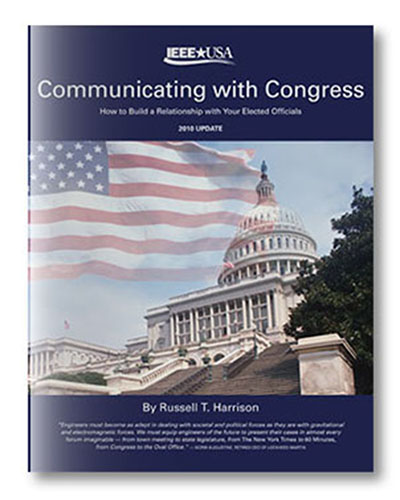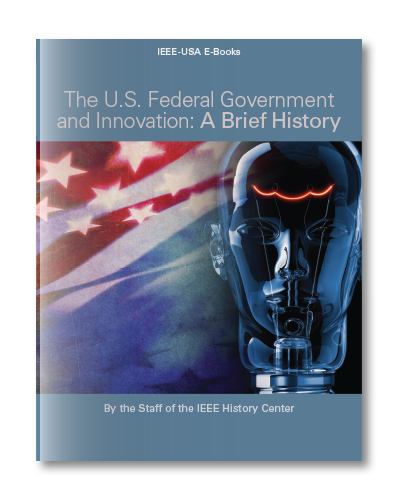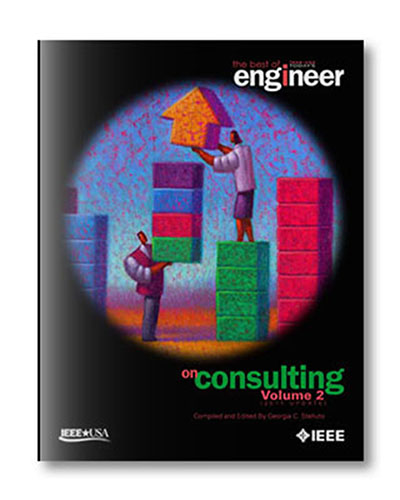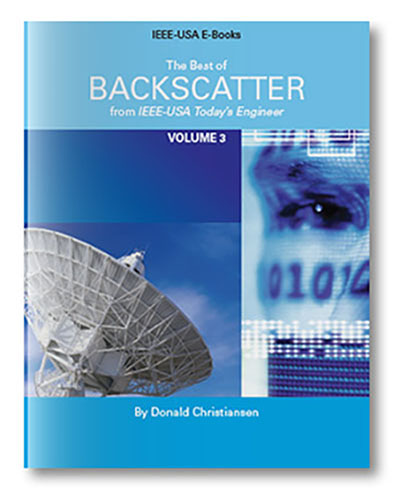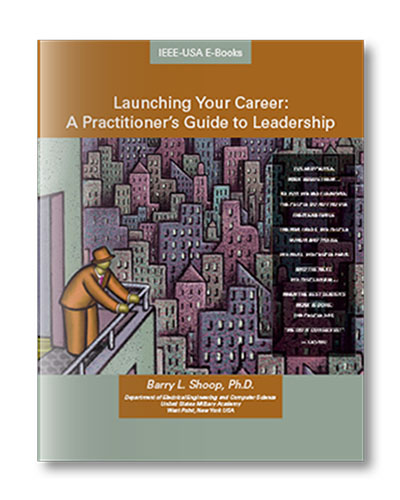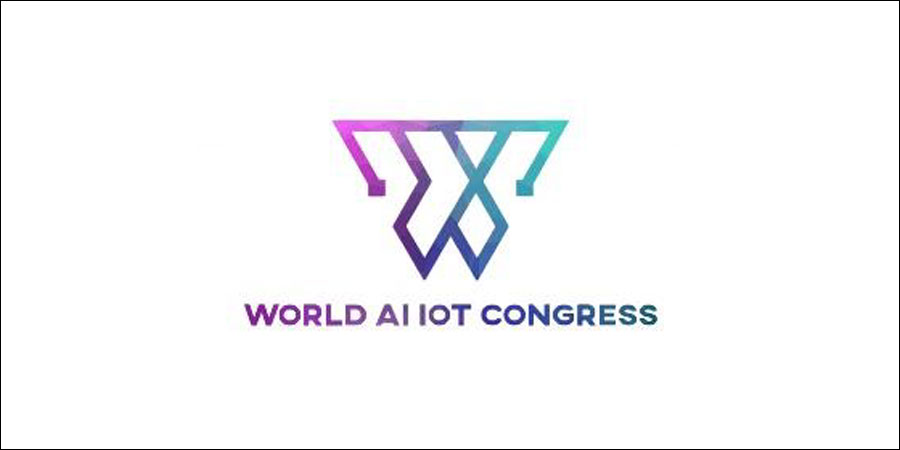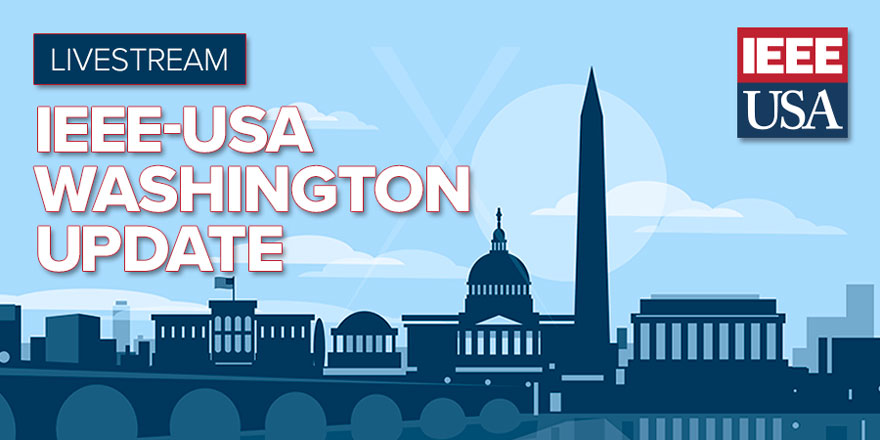-
The IEEE-USA Employment Assistance Committee has continued its interest in developing a better understanding of the problem of unemployment among older engineers, by conducting a survey of engineers who were unemployed at some point during the 2011 IEEE membership year. The first survey was conducted in 1995, with replications in 1996, 1998, 2002, 2004, 2006, 2008, 2010, and again, in 2011. Member: $7.99 Non-Member: $9.99
-
The IEEE-USA Employment Assistance Committee has continued its interest in developing a better understanding of the problem of unemployment among older engineers by conducting a survey of unemployed engineers. This report of results is organized into four sections. The first section reports the percentage distribution or means response for each of the questions in the survey. The second section reports the results of selected cross tabulations that focus on age and various aspects of employment status. The third section reports the results of a multivariate analysis that focuses on the impact of age on the duration of unemployment, when other factors are held constant. The final section compares some of the current results to those in 1995, 1996, 1998, 2002, 2004, 2006 and 2008. Member: $7.99 Non-Member: $9.99
-
Given that individuals gather, learn and retain information differently, presenters need to incorporate multiple methods of communicating information during a presentation. Visual aids can provide strong visual tools and increase the audience's retention of your core message. Learn how to supplement your presentation with effective PowerPoint slides or other visual aids. Member: FREE Non-Member: $9.99
-
Telecommunications has been one of the most influential technologies in human history. As the speed and volume of the transmission of messages increased, history itself has been made and altered. Telecommunications has not only influenced history, it has also allowed us to share and participate in historical events. This book is a collection of articles written by the staff of the IEEE History Center highlighting some of the many triumphs in the world of telecommunications. Member: FREE Non-Member: $5.99
-
Why should you engage the political system? Because you already are, in the sense that your life is already unavoidably linked to decisions made (or not made) by politicians. Your only real option is to help influence those decisions, or just hope for the best. You, your family, your profession and your country will be better off, if you choose to speak up. The 2010 Update of this book will assist you in building relationships with your elected officials. Member: FREE Non-Member: $7.99
-
A personal introduction, captivating opening, interesting body and compelling conclusion comprise the four major parts of a successful presentation. But once you have an organized and well-written presentation, it's time to shift your focus to delivery by incorporating eye contact, varied voice, and fluid body language. Member: FREE Non-Member: $9.99
-
Book 2 of this series builds on the perspectives presented in Book 1, and examines managing and leading by: 1) managers at all levels, and 2) the Individual Professional Contributor/knowledge workers. Your success in either of these two options depends on being authentic, being yourself, and recognizing your capabilities and limitations. Member: FREE Non-Member: $9.99
-
IEEE-USA's Energy Policy Committee developed this whitepaper e-book as an addendum to IEEE-USA's National Energy Policy Recommendations, including policy recommendations for the Smart Grid, expanding our nation's transmission infrastructure, and energy storage. This e-book whitepaper is intended to provide additional background information to support IEEE-USA's recommendations. Member: FREE Non-Member: $4.99
-
This book briefly outlines, for engineers and policymakers, the history of U.S. government involvement in technological innovation. Member: FREE Non-Member: $5.99
-
IEEE-USA's Consultants Fee Survey Report, 2011 Edition, focuses on the compensation of U.S. IEEE members. Member: $7.99 Non-Member: $9.99
-
A technical expert must not only know, understand and interpret complex data but also present the facts through clear, concise and correct speech. The first step in conveying technical information is to establish a clear understanding of when, where, why, how, what and to whom your information is to be presented. The next step is to structure the presentation. The structure of a presentation includes the organization of ideas, the definition of major sections and the transitions between sections. A logical structure coupled with techniques to illustrate, emphasize and explain central themes will assist your audience to understand the core message. Member: FREE Non-Member: $9.99
-
IEEE-USA has conducted surveys focusing on the compensation of consultants in 2002, 2004, 2006, 2007, and 2009. Other than 2009, these were standalone surveys, and they were not a part of the overall Salary& Fringe Benefits Surveys. In 2009, for the first time, the two survey efforts were combined. As a result, the sampling frame and qualifying definition of consultant were changed from previous implementations. And this year, the results were further filtered to those consultants who also indicated they were employed in their primary area of technical competence (PATC). Not only is the current definition different (consultants are now defined as primarily fee-based and self-employed full or part time and), but the PATC restriction does not apply this year either. Member: $7.99 Non-Member: $9.99
-
Successful career management doesn't happen just by luck. It calls for constantly monitoring your sense of success (Am I where I believe I should be in my career?) and your sense of fulfillment (Am I experiencing satisfaction from the work I do?). Career management is an on-going process; it calls for skills in job search techniques, knowing how to promote your value to your employer, and keeping up with your industry and profession, as these areas change and develop. This new collection of articles from Today's Engineer will be useful to you, regardless of whether you are looking for a job, wondering if you are valued as much as you should be in your organization, or pondering the future of engineering as a vehicle for innovation and productivity. Member: FREE Non-Member: $5.99
-
This publication will address such topics as your reasons for becoming a consultant; how to become a better networker; and how to incorporate the new social media into your practice. Having these topics in a centralized location will be convenient for your reference, as you build and incorporate new ideas into your practice. Members: FREE Non-Members: $5.99
-
This latest compilation volume covers topics that have concerned (and sometimes perplexed) engineers for years, if not decades. Among the highlighted articles are how engineers manage their careers, the future of the profession, and the role of the engineer, as seen by the general public. Member: FREE Non-Member: $5.99
-
Updated for 2010, this e-book is a concise, step-by-step guide to compiling and organizing important personal information in advance of your or a family member's death, so that survivors can more easily handle necessary tasks following the loss of a loved one. Member: FREE Non-Member: $5.99
-
Many engineers are excellent writers, adroit at taking on technology's toughest challenges and using language to clearly and cogently describe what they have learned. Indeed, engineering's history has been marked by important works written clearly and competently by engineers. In the following pages you will meet some engineers, engineers of every stripe, who are also award winning and much lauded writers of poems, short stories and novels. Each of these engineers has been successful in the world of literature, and their competence with language undermines any claims that engineers can't write. They will explore the differences and similarities found within writing and engineering; offer some thoughts on how engineers can conceptualize their writing to improve their reports, articles, proposals and other documents; and, hopefully, show why engineers, one and all, should be able to write -- and write very well. Member: FREE Non-Member: $9.99
-
Good writing comes from hard, diligent work. Engineers understand what that means in their profession. In writing, that effort means giving our writing a close read, and testing it in every way. As in our engineering efforts, these tests are conducted to identify problems. And when problems are found, we must then develop effective solutions. With writing, these tests involve using our critical eye to detect any aspects of our writing that are unclear, wordy, vague, inaccurate, missing, or unneeded. We understand the purpose of our writing and read it, edit, rewrite and reread it, until we are sure it accomplishes that purpose as directly and effectively as possible. Member: FREE Non-Member: $9.99
-
The competencies needed to lead and manage continue to be misunderstood. As a society, we focus on leadership as demonstrated by politicians, industry executives and individual effort related to some major accomplishment. This book discusses managing and leading as related to technical professionals and their managers. Member: FREE Non-Member: $9.99
-
Engineers and scientists are frequently required to present technical information to a broad spectrum of individuals, including co-workers, executives and potential clients in a variety of formats, such as conference papers, training materials and funding proposals. Even if you do not present conference papers or other formal presentations, you must present your ideas and opinions daily, in a clear and concise manner. Without a strategy and appropriate preparation, a presentation will be unfocused, not apply, or fail completely. Book 1 of this four-book series outlines a framework to help you prepare for your next presentation. Member: FREE Non-Member: $9.99
-
As a consultant is preparing a proposal or negotiating a contract, one of the primary concerns is deciding how much to charge. To establish a fixed price or a fee that is both competitive and fair, the consultant needs to know what other consultants working in similar fields charge. In response to this need, the Alliance of IEEE Consultants Networks (AICN) conducts national fee surveys of its members. This report on the IEEE-USA 2009 Consultants Fee Survey provides the profile of typical self-employed and independent technical consultants, including their education, experience, business practices, median earnings and hourly fee. Member: $6.38 Non-Member: $7.99
-
This e-book is a guide for engineering students who are about to begin their career, or the engineer who is just launching his or her career. A number of practical ideas and thoughts are suggested that can help you make lifelong learning a priority in pursuing an exciting and rewarding career. Member: FREE Non-Member: $5.99
-
Becoming an effective leader is important, because effective leadership can make the difference between a good organization and a great organization. A compilation of insights from numerous scholarly references and the author's personal leadership experiences, Launching Your Career: A Practitioner's Guide to Leadership provides a starting point for those interested in becoming more effective leaders by stimulating thought, motivating practice, and inspiring reflection. This succinct e-book covers the spectrum of leadership development, including leadership theories, principles of leadership, leadership traits, the distinction between managers and leaders, team composition and diversity of opinion, individual and group dynamics and running effective meetings. Member: FREE Non-Member: $7.99
-
The 2010 IEEE-USA Salary & Fringe Benefits Survey is the 23rd compensation study IEEE-USA has published. The aim of the project is to provide timely information on current and long-term trends related to the income, salary and benefits of IEEE members in the United States. This information is critical for accurate understanding of compensation practices in this profession, including how those practices impact individual engineers. Member: $25.00 Non-Member: $50.00


